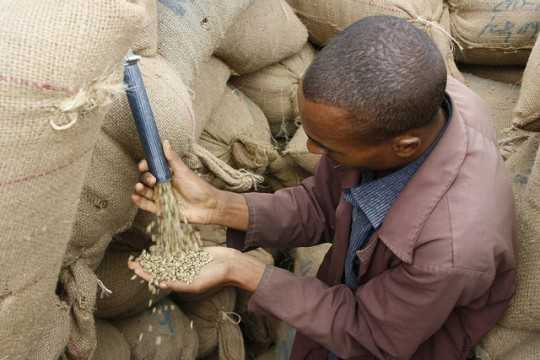In a landmark agreement signed by the Government of the Dominican Republic (GoDR), the National Cocoa Commission (NCC) and the United Nations Development Programme (UNDP), the Dominican Republic has committed to strengthening the sustainability of the cocoa sector, that directly employs 40,000 farmers and provides indirect employment to an additional 350,000 people across this Caribbean nation.
Specifically the cooperation agreement establishes the framework for the National Cocoa Platform (NCP), a neutral private/public forum involving government, cocoa exporters, chocolate companies and the farmers themselves, to identify and implement practical solutions to current challenges, such as low yields, weak socio-economic development and negative environmental impacts of cocoa farming.
These solutions will be outlined in a 10-year National Action Plan to be endorsed later this year by the NCP and implemented by all stakeholders.
“We are extremely satisfied with this support that UNDP is providing because of which the Dominican cocoa continues to be seen on the international stage as an ambassador for Dominican culture,” said Agriculture Minister and NCC President Angel Estévez Boudierd.
The Dominican Republic produces high-grade, organic and fine flavour cocoa, exporting almost 70,000 tonnes per year. During the 2013/4 harvest, exports reached 69,000 tonnes of cocoa, generating some US$214 million in revenue. However, over 85% of cocoa farming is carried out by small-scale farmers (two hectares or less per farm) who use outdated agricultural practices and lack the financial means to invest in their plots.
This means that crop yields are low, profitability is negligible, and farmer incomes subsequently remain at poverty level.
This negative cycle discourages the younger generation from cultivating cocoa, and today the average age of a cocoa farmer in the Dominican Republic is over 60 years. In a practical sense, this can mean that a farmer may not meet the physical requirements to maintain his or her cocoa farm, including pruning the trees.
“By supporting the National Cocoa Platform and the National Action Plan, UNDP is aiming to improve the governance of the sector,” said Lorenzo Jiménez de Luis, UN Resident Coordinator in Dominican Republic. “Cocoa is an exceptional opportunity for the Dominican Republic to achieve inclusive economic growth and alleviate poverty, all while respecting the environment.”
This agreement has also had the key support of the private sector, notably Mondelēz International, the world’s largest chocolate company and the largest buyer of cocoa in the Dominican Republic.
“We are delighted to support the platform which will help the Dominican Republic to take ownership of its future in cocoa and to find lasting solutions,” said Cathy Pieters, Director of the Cocoa Life programme at Mondelēz International.
Thanks to the signing of the agreement, the NCP will focus on key measures to improve the sustainability of the cocoa sector, such as: (i) technical assistance for producers through the Farmer Field School methodology; (ii) a coordination body for social projects; (iii) programmes that will generate opportunities for young people in farming communities; (iv) alternative income-generation activities; and (v) access to financial services for producers to rehabilitate cocoa farms and plant more sustainable cocoa trees.
UNDP’s Green Commodities Programme, established in 2009, works to transform agricultural production and trade around the world through multi-stakeholder collaboration and by establishing effective national enabling environments in producer countries.


















